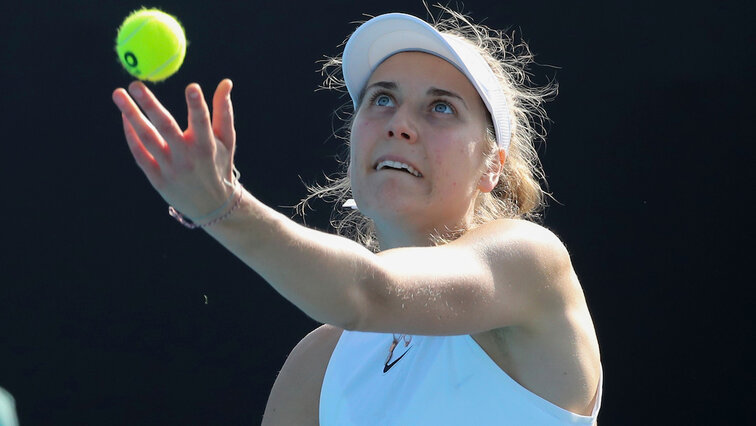What comes after Kerber, Zverev and Co.?
Alexander Zverev will play at the Australian Open on Wednesday for the first time in the semi-finals of a Grand Slam tournament. However, there is a big gap behind the German number one. This also applies to the women's area.
by Jörg Allmeroth
last edit:
Jan 28, 2020, 02:36 pm

The man who once held the greatest German youth hopes alongside Alexander Zverev had a rather discreet engagement in tennis last week. Nicola Kuhn, once world champion with the German U14 junior selection, competed in the Challenger 2 competition in Bangkok. In the first round everything was over for Kuhn, he lost to the Russian Aslan Karazew in three sets. Kuhn, you have to say, has not been flying the German flag for some time - he now represents the Spanish colors, also because he trained on the Iberian Peninsula for many years.
But Kuhn's development, which was not entirely trouble-free, including his departure from the German Tennis Association, is part of a picture of some disappointments and setbacks in talent development. Rudi Molleker's career development is also part of it. Like Kuhn, the young Brandenburg was a member of the successful U14 squad. There is no question that Molleker has the guts, the passion and the class to grow up. But he is also considered a difficult case, a complex character, someone who has difficulty coping with the authority of a trainer. He's already worn out many coaches, even Boris Becker had to intervene and warn that Molleker had to justify the generous support from the DTB with performance.
Exceptional talent Zverev
Molleker (ATP ranking 165) still has his future ahead of him, an uncertain future, because the outcome of the negotiations is still pending as to whether the 19-year-old will successfully make the difficult transition from junior to adult tennis. The balance of recent years on this so-called “transition” route, from training to real working time, was poor for the DTB - apart from the exceptional talent Zverev, whose rise is a family matter.
These days, apart from Zverev, no German player under 25 is in a relevant place in the world rankings. Molleker (165) is followed by Daniel Masur (263), Maximilian Marterer (274), Benjamin Hassan (322) and Louis Wessels (427), out of reach of the closer and expanded world leaders. Marterer, however, had already been placed in the top 100, was then thrown back by injuries and the DTB coaches trust him to rise again. Not generations and co-workers, but future generations should benefit from a changed philosophy in education, an earlier centralization of the best juniors. "So far we have been too late to pull our best together and expose them to a healthy rivalry," says DTB sports director Klaus Eberhard.
Big gap behind Kerber and Görges
For women, there is an even more serious gap behind the generation of top performers. Angelique Kerber , Julia Görges , Andrea Petkovic, Laura Siegemund and Tatiana Maria are all over thirty. Players who could replace this “golden generation” are not in sight - it is not only a problem for the DTB itself, but also for the tournament organizers across the country. For the Stuttgart Porsche Grand Prix, but also for the competitions that will take place in Berlin, Bad Homburg and Cologne from 2020 and 2021. Only two German players under 25 are currently in the top 200, Hamburg's Tamara Korpatsch (110) and Rhineland's Antonia Lottner (156).
Lottner, who was once one of the world leaders in Grand Slam junior competitions, is now standing on the spot with the adults, a breakthrough at the moment is currently unrealistic. Players such as Katharina Hobgarski (241), Katharina Gerlach (245) or Jule Niemeier (300) are currently positioned further back, who have been part of the Porsche youth team in recent years, but for whom the big tour is still too big. The Hamburg-based Carina Witthöft is quite unusual in this calculation, despite all the potential she lacked the decisive bite to be able to withstand the rigors of the professional business. Witthöft drew the consequences himself and said goodbye to professional tennis.
Kerber had "brought back German tennis" four years ago with her Australian Open victory, as tennis chancellor Boris Becker found. Now, however, there is a risk of loss of meaning if it turns out that the ancestors may have their best times behind them. Barbara Rittner, the head of the DTB, swears the fans on a losing streak before it could go up again in the distant future : “The vintages from 2002 to 2004 playfully have a similar potential as the golden generation. The question is whether everyone has the hardness to bite through highs and lows, ”says Rittner,“ there is no guarantee. ”
